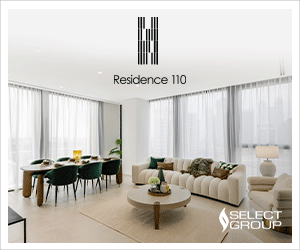It’s not uncommon for disputes to arise between tenants and landlords. In most cases, these issues may be settled peacefully; however, you may need to refer the situation to the Rental Disputes Centre in some instances.
If one of the parties fails to honour the conditions of the contract throughout the tenancy period, the relationship between the landlord and tenant might become strained.
The real estate sector is one of Dubai’s most important businesses, and recent pricing and policy fluctuations have resulted in some landlord-tenant conflicts. If you ever have a rental dispute in Dubai with your landlord and need to make a formal complaint, you should know how to do it.
Some Common Reasons for Rental Dispute

There are several grounds for a landlord-tenant disagreement, but the following are the most common:
- Eviction based on irrational grounds
- Increased rent by the landlord without conforming to the Dubai rent increase law
- Cut off of essential services
- Leasing of an apartment that has flaws and is infested with pests
- Deduction from the security deposit without reason
However, if you follow the following steps, you can settle your rental dispute in Dubai effectively.
1- Knowing about Dubai Tenancy Laws
You should make yourself familiar with the Dubai Tenancy Law before considering initiating a rental dispute in the Emirate. The government has enacted severe legislation to regulate rental agreements.
For instance, when it comes to rent increases, the law requires all landlords to provide their tenants with a 90-day notice to raise the rent. The rent increase must be based on RERA’s rent index, and the notice must be given by registered mail.
Knowing the RERA rental laws and legislation is the first step toward effective conflict resolution, whether you’re a landlord or a renter. You cannot initiate a rental dispute in Dubai at RDC on the basis of assumption. It is essential to obtain legal advice if you do not have a thorough knowledge of the law.
2- Informing the Opposition and Coming to a Solution
It’s best to tell the opposing party of your legal standing after you’ve figured out the laws that support your RERA complaints. For instance, If you believe you’ve been charged an unjust rental increase, you should notify your landlord. You should also make sure to keep track of everything you say to the other party.
Despite all the resolutions, If you and your landlord are still unable to reach an agreement, you can submit a RERA rent complaint with the Dubai Rental Dispute Committee. However, it is important to keep in mind that initiating a rental dispute lawsuit in Dubai can be a lengthy and inconvenient procedure. So, your final alternative to this problem is approaching the Rental Dispute Centre Dubai to solve this once and for all.
3- Documents Needed to File RERA Complaints
Following are some of the documents you need to register a rental dispute in Dubai.
- Tenancy contract and certificate of Ejari
- DEWA bill (Latest copy)
- Landlord’s title document and passport (both original and copy)
- Copy of the tenant’s passport and visa
- Emirates Identification Card (both original and copy)
- Deposit slips for your rental property
- Cheques made out to the landlord (Copies)
- Copy or proof of the parties’ communication
- Any other papers pertaining to the dispute
Note: Some of these documents will need to be translated into Arabic, so make sure you get it done before going to the RDC (Rental Disputes Centre) in Deira. The typists at the Rental Disputes Centre also provide translation services.
4- Visit RDC (Rent Dispute Resolution Centre) or Register your Case Online
You can make a complaint online using the Rent Disputes Resolution service in Dubai. However, you can also visit their head office personally in Deira to register your case. The Rental Dispute Resolution Centre (RDC) was formed by Decree No. 26 of 2013, which deals with and resolves all types of rental disputes in Dubai.

You can hand the material over to the RDC typist who will complete your RERA complaint. The typist will ask about your rental problem and advise you on how to formalise and register your complaint.
5- The Hearing
The rental disagreement in Dubai will first be submitted to the Arbitration Department, which will endeavour to resolve the dispute within 15 days after you submit the relevant paperwork and register your case.
If arbitration fails, you must file a lawsuit to resolve your RERA case. The case has a 30-day deadline for receiving a decision.
If you submit a lawsuit, RERA will set a day and time for you to present your rental dispute case. Depending on the number of cases heard that day, the hearing might last a few hours.
However, if the bench determines that your rental disagreement case in Dubai is not significant or that you lack adequate proof, you may be required to appear for another hearing.
The resolution of this procedure might take weeks or even months. This is why, before initiating a dispute with RERA in Dubai, it is critical for both renters and landlords to consider all options and information.
Things to Know about Filing a Rental Dispute in Dubai
Cost of Lodging a Rental Dispute
In addition to the time and effort required, initiating a rental dispute in Dubai has a monetary expense. The cost of filing a RERA complaint is divided into three categories:
- Fees for filing a dispute: 3.5 percent of the property’s yearly rent (at least AED 500 and up to AED 20,000)
- The cost of using a typing centre is AED 210. (may differ)
- AED 110 for administration (may differ)
Besides this, you may also want to factor in the parking charges, which you may have to pay at the rental dispute centre. A day’s proceeding usually takes a couple of hours, sometimes even more.
Aside from that, you should consider parking fees, which you may have to pay at the rental dispute centre. A typical day’s proceedings can last a couple of hours.
How much Rent can be Increased in Dubai by the Landlord?
The maximum percentages by which a landlord can increase the rent are specifically stated in Decree No. 43 of 2013.
Unless otherwise agreed, the tenant or the landlord must give 90 days’ notice of non-renewal of the tenancy contract. According to the RERA index, if the landlord wishes to raise the rent, he or she must give a 90-day notice period.
If you don’t tell the landlord, they won’t be able to raise the rent. Moreover, the Dubai property rental contract is automatically renewed at the same rental fee if no electronic or writing contact is received.
If the landlord plans to sell or rent the property for his own use or their relatives, they must provide you with 12 months’ written notice through notary public or registered mail ahead of the eviction date.
In all, it takes a long time to find a property for rent in Dubai that matches your requirements and fits your budget. But, a dispute with the landlord can jeopardise the entire experience. So, stay abreast with the retinal laws so that there’s a minimum chance of such disputes to arise.



 Join Our Newsletter
Join Our Newsletter